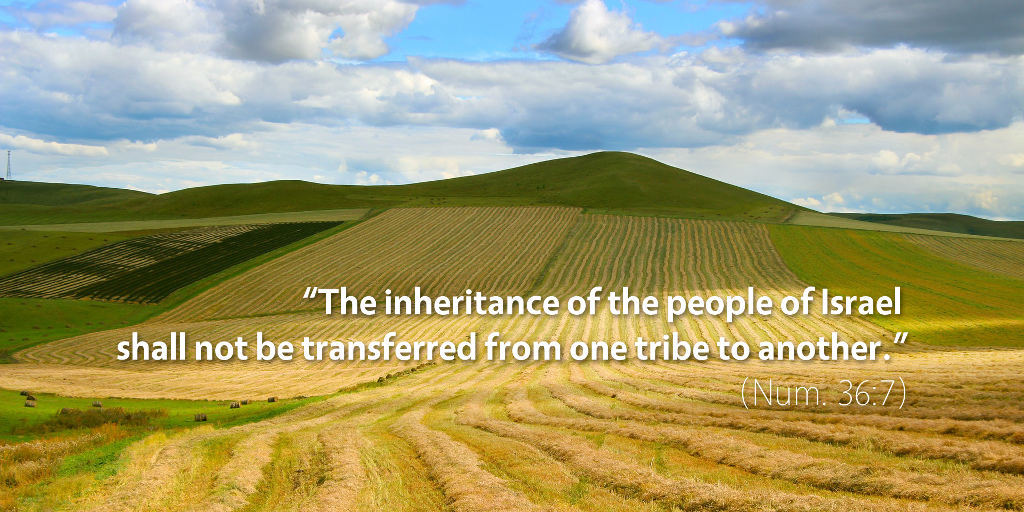Bible Readings for May 27th
Numbers 36 | Psalm 80 | Isaiah 28 | 2 John 1
Numbers 36 continues the story that we read back in Numbers 27, when the daughters of Zelophehad petitioned Moses to receive the inheritance that had belonged to their father, since he had died without a male heir to carry on the family’s place in Israel. It seems that, as time has gone on, the people discovered another technicality that affected the long-term possession of the land within the half-tribe of Manasseh.
The issue is this: while Yahweh did command that the daughters of Zelophehad should possess their father’s inheritance in the absence of a male heir (Num. 27:5–11), the heads of Manasseh realized that if the daughters of Zelophehad married men from other tribes, their inheritance would legitimately and permanently pass to those tribes. Furthermore, during the Year of Jubilee, their inheritance would be restored to those other tribes, since the jubilee only restored property that had been sold temporarily to pay off debts (Num. 36:1–4).
To resolve this issue, Yahweh offered a fairly simple solution: the daughters of Zelophehad could marry whomever they wanted to, so long as those men were from the same clan (Num. 36:5–8). That way, their inheritance would stay within the clan, rather than passing to another tribe altogether.
In these final chapters of the book of Numbers, we have read multiple stories about the preparations that Moses took with Israel to ready them for taking claim to their inheritance. Why was the issue of inheritance so critical to require this much space in the Scriptures? And why is this story the final word in the whole book of Numbers?
Put simply, the inheritance Yahweh was giving his people was the means by which he would give his people himself. The Promised Land was the place where Yahweh would dwell with his people, so the land was the means by which Israel would be Yahweh’s people and Yahweh would be Israel’s God.
For the same reason, the final word of the New Testament is the story of the new Jerusalem in which we will dwell with God in Revelation 21–22. The important part of those passages isn’t the precious jewels out of which God will build his holy city but rather the fact that, as the loud voice from the throne announces, “Behold, the dwelling place of God is with man. He will dwell with them, and they will be his people, and God himself will be with them as their God” (Rev. 21:3).
Christian, as strange as these discussions of the particularities of the inheritance within the clans of Israel may strike you, pay attention and do not miss the point—this is your hope. You stand to inherit Christ so that you may dwell with him forever, and “He who testifies to these things says, ‘Surely I am coming soon.’ Amen. Come, Lord Jesus!” (Rev. 22:2).
Podcast: Play in new window | Download (5.1MB) | Embed
Subscribe: Apple Podcasts | RSS | More

Scripture quotations are from The Holy Bible, English Standard Version copyright © 2001 by Crossway Bibles, a division of Good News Publishers. Used by permission. All rights reserved.


